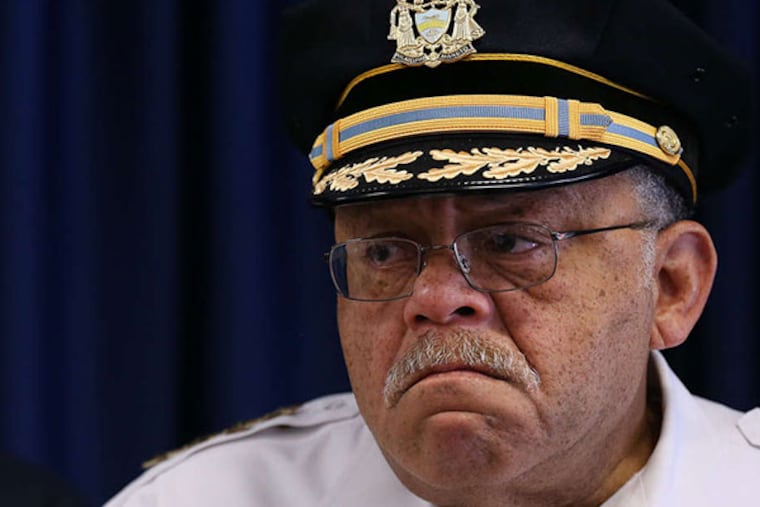Police need oversight
With all due respect to Commissioner Charles H. Ramsey, who by all appearances has tried mightily to do better than his predecessors, the police have never been able to police themselves in Philadelphia.

With all due respect to Commissioner Charles H. Ramsey, who by all appearances has tried mightily to do better than his predecessors, the police have never been able to police themselves in Philadelphia.
The indictment of six narcotics officers accused of shaking down drug dealers was just the latest chapter in a very thick book. And there will be many more chapters unless city officials admit that the police force needs more than token civilian oversight.
The closest it came to that was between 1996 and 2005, when there was a police Integrity and Accountability Office. It was shut down after then-Mayor John F. Street and Commissioner Sylvester M. Johnson vehemently disagreed with a very critical review of the department.
The report by integrity officer Ellen Green-Ceisler, now a Common Pleas Court judge, found that even when the Internal Affairs Division concluded that officers had violated policies, disciplinary measures weren't taken in the majority of cases.
Since the integrity office served only in an advisory capacity, it recommended creating an independent agency to review allegations against officers and penalize those found guilty. Street and Johnson ignored the report, calling it politically motivated. Ceisler's term ended, and the position was left vacant.
Philadelphia does have a Police Advisory Commission, but it is a toothless tiger. Its four-member staff investigates complaints about police behavior and tracks shootings involving police, but the appointed board has no authority to punish officers.
The commission's website lists only six members, not the 15 the mayor and City Council are supposed to appoint. More startling, none of the data on the website was collected later than 2011. In fact, most of it is included in reports that the defunct integrity office issued in the late 1990s and early 2000s.
This lackadaisical approach to monitoring the police mirrors this city's attitude about too many matters that must be taken more seriously - among them its underfunded, failing schools, which are a drag on efforts to entice more families into calling Philadelphia home.
It's time for change. It's time for police officers to fear the consequences of corrupt activities before they engage in them. It's time to stop waiting for federal investigators to step in because the chain of command can't maneuver past the police union's roadblocks. It's time for the mayor and Council to create a civilian oversight office with the power to do more than recommend disciplinary measures.